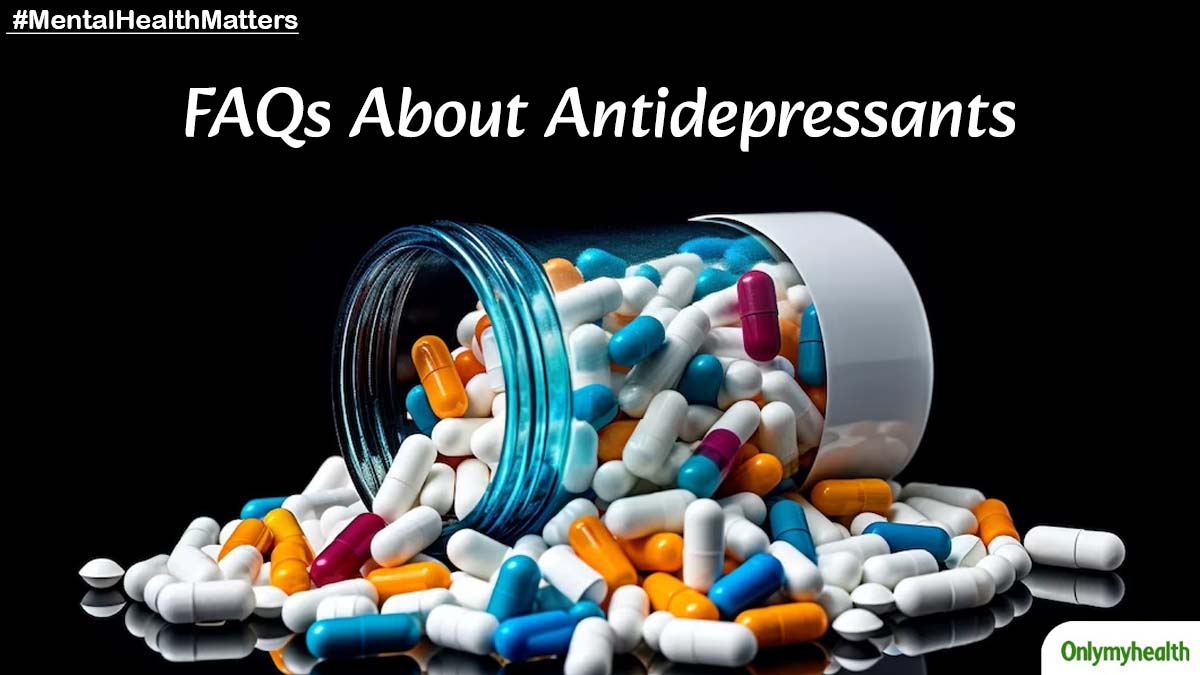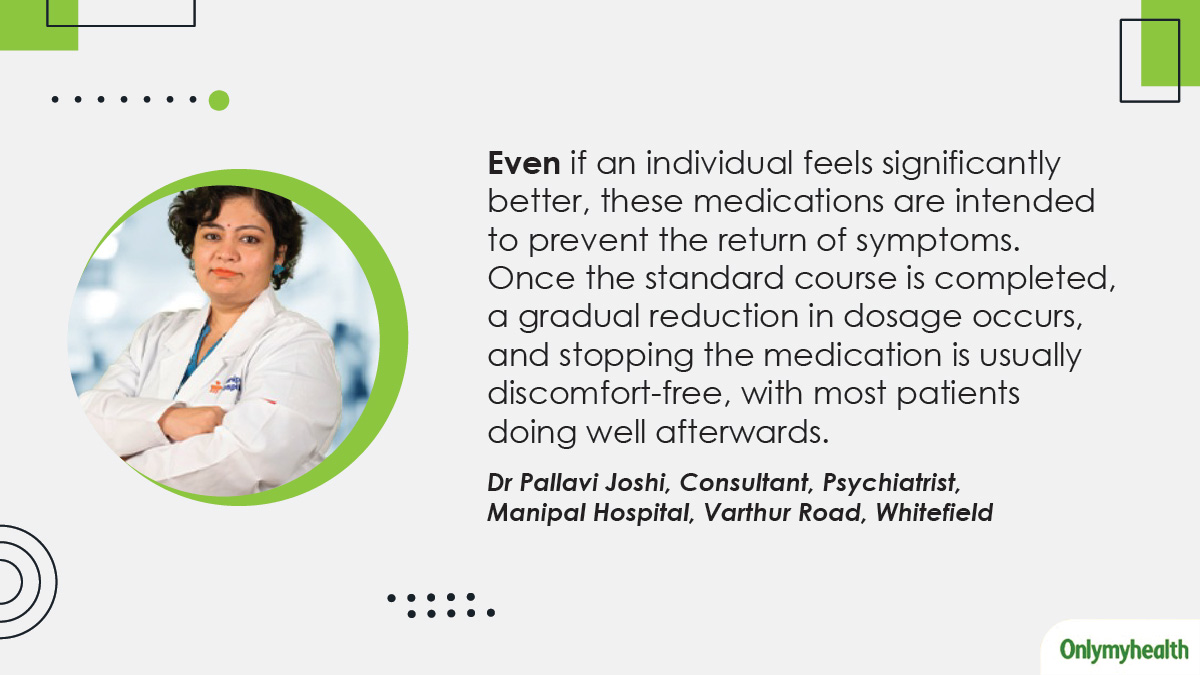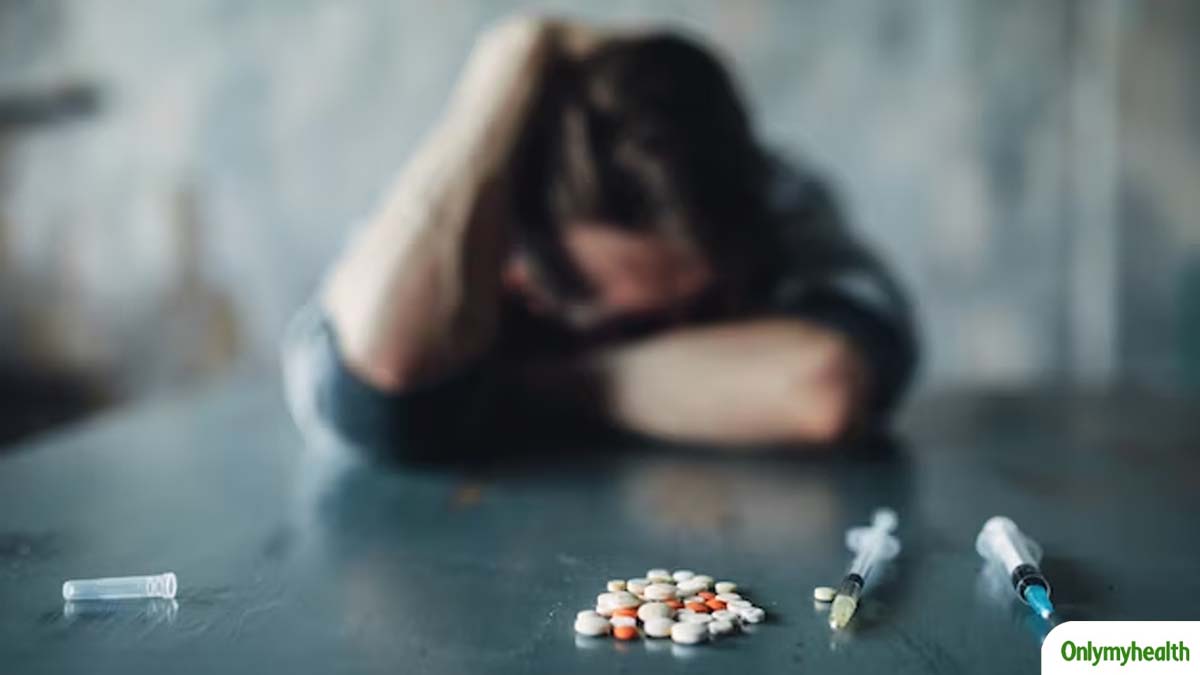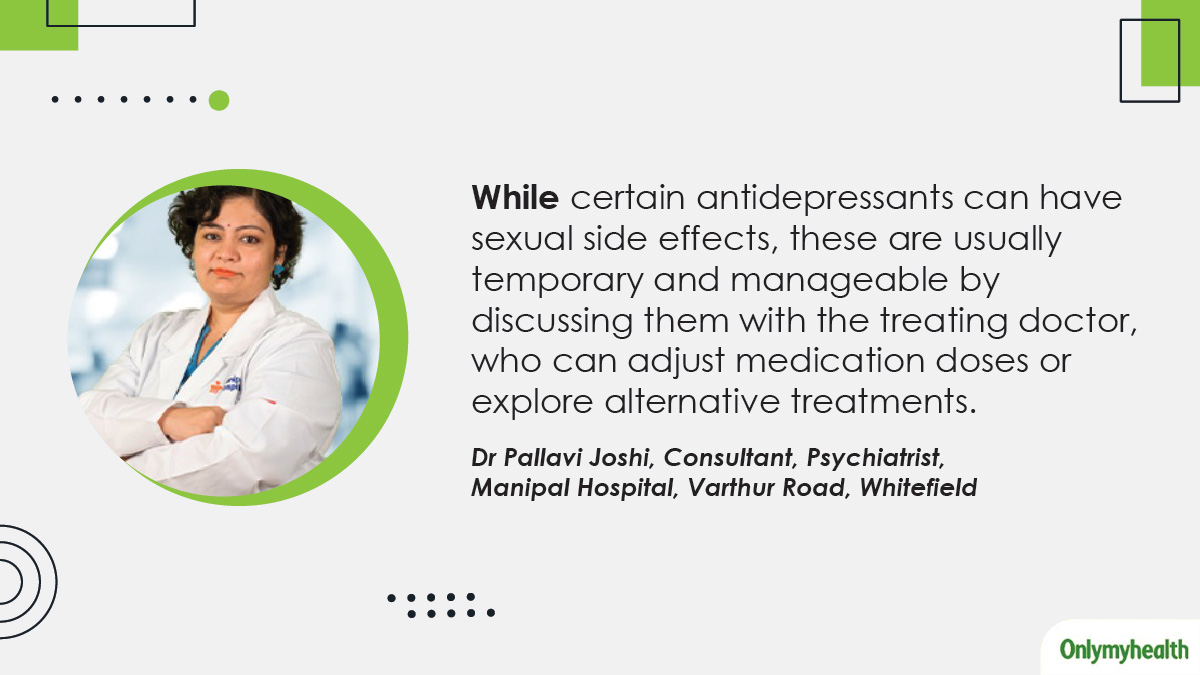
Antidepressants, a class of medications designed to alleviate the symptoms of depression and related mental health conditions, have become a crucial aspect of modern psychiatric care. As more individuals seek effective solutions for managing their emotional well-being, questions and uncertainties about antidepressants are natural.
Table of Content:-
This week in our ‘Mental Health Matters’ series, we delve into Frequently Asked Questions (FAQs) about antidepressants, providing clarity on their usage, potential side effects, impact on daily life, and the broader context of mental health treatment. We spoke to Dr Pallavi Joshi, Consultant, Psychiatrist, Manipal Hospital, Varthur Road, Whitefield, who shares insights on the same.
FAQs About Antidepressants

1. Do antidepressants come with side effects?
Dr Joshi explained that every medication has some side effects. She said, “Even something as simple as a B-complex can lead to bad-smelling burps. Psychiatric medicines are not exempt from side effects, but most of them are mild and tend to be self-limiting. These side effects typically appear within a couple of days, diminish or disappear within a few weeks. The size of the therapeutic effect is significant, while the size of the side effects is quite small. Therefore, these potential side effects shouldn't deter individuals from following their psychiatrist's prescription.”
2. Are self-help methods like yoga and alternative treatments effective and worth trying initially?
Dr Joshi highlighted that while these methods have their merits as preventive strategies, severe depression often surpasses their benefits. She said, “We recommend integrating these methods into a maintenance regimen alongside ongoing medication or using them as lifestyle strategies to prevent future depressive episodes and manage stress effectively.”
Also Read: Mental Health Matters: Does Social Media Normalise Photoshop and Influence Body Dysmorphia?
3. My symptoms returned after I stopped taking the antidepressants even though I felt better initially. What does this mean?
Dr Joshi clarified that just as with infection treatment, where stopping antibiotics prematurely can lead to recurrence, antidepressants are prescribed for a maintenance course to prevent symptom relapse. She said, “Even if an individual feels significantly better, these medications are intended to prevent the return of symptoms. Once the standard course is completed, a gradual reduction in dosage occurs, and stopping the medication is usually discomfort-free, with most patients doing well afterwards.”
According to the Institute for Quality and Efficiency in Health Care, during the initial weeks and months, antidepressants aim to alleviate symptoms and, if feasible, eliminate depression. Once this is accomplished, treatment is prolonged for a minimum of four to nine months to prevent symptom recurrence.

4. I missed taking my antidepressants for two days and experienced discomfort, strange sensations, and flu-like feelings. Does this mean I'm addicted?
Dr Joshi explained that the discomfort experienced is due to withdrawal symptoms, a common occurrence when abruptly discontinuing medication taken over several months. She added, “Unlike addiction, where individuals tend to increase their dose, this is a withdrawal effect resulting from the brain's adaptation to the medication.”
She further said, “We taper the medicine very slowly. Your brain knows the difference between 100 kgs in one hand and 50 kgs in another. However, it doesn’t understand the difference if you put 100 kgs in one hand and 99 or 99.5 kg in the other hand. The distinction is subtle. While lowering the medicines, we use the same principle and patients normally don’t face any problems when we taper and eventually stop the medicines.”
Also Read: Mental Health Matters: Why Do I Overthink So Much?

5. How can a pill alter my thought process?
Dr Joshi emphasised that dietary choices can influence thought processes, citing how sugar and caffeine affect mood. She explained that antidepressants are more potent and targeted in addressing specific changes related to depression. Just as dietary changes and exercise can impact mood, antidepressants play a role in altering thought processes by balancing neurotransmitters, thus affecting how one thinks and feels.

6. Can antidepressants affect your sexual life?
Dr Joshi acknowledged that depression and some antidepressants can impact sexual desire and performance. She said, “While depression often leads to reduced sexual interest and functioning, some patients report improved sexual desire when depression lifts due to antidepressant treatment. While certain antidepressants can have sexual side effects, these are usually temporary and manageable by discussing them with the treating doctor, who can adjust medication doses or explore alternative treatments.”
7. Do antidepressants increase appetite and cause weight gain?
Dr Joshi said, “Some antidepressants may increase appetite. We choose them for patients experiencing appetite loss due to depression. Conversely, some antidepressants have minimal impact on appetite and may even modestly reduce it, making them suitable for specific cases.”

8. Do antidepressants affect creativity and personality?
Dr Joshi clarified that severe depression, not antidepressants, is more likely to curb creativity. She said, “Mildly depressed individuals can still engage in creative pursuits, although their focus might lean towards negative aspects of life. As depression advances, creativity can decline. Antidepressants help restore mood and thoughts to normal, enabling individuals to experience life with increased interest. Antidepressants usually don't alter a person's fundamental personality or nature.”
9. Should counselling be prioritised over psychiatric medications?
Dr Joshi acknowledged that not all patients require psychiatric medications. She informed, “Some individuals respond well to counselling, dietary adjustments, exercise, and other forms of psychotherapy. The decision depends on various factors, such as symptom severity, duration, coexisting illnesses, family history, and the number of depressive episodes.”
Disclaimer
The information in this article is shared by a registered healthcare professional and is for informational purposes only. Hence, we advise you to consult with your healthcare expert for treatment and counselling catered to your needs.
Also watch this video
How we keep this article up to date:
We work with experts and keep a close eye on the latest in health and wellness. Whenever there is a new research or helpful information, we update our articles with accurate and useful advice.
Current Version